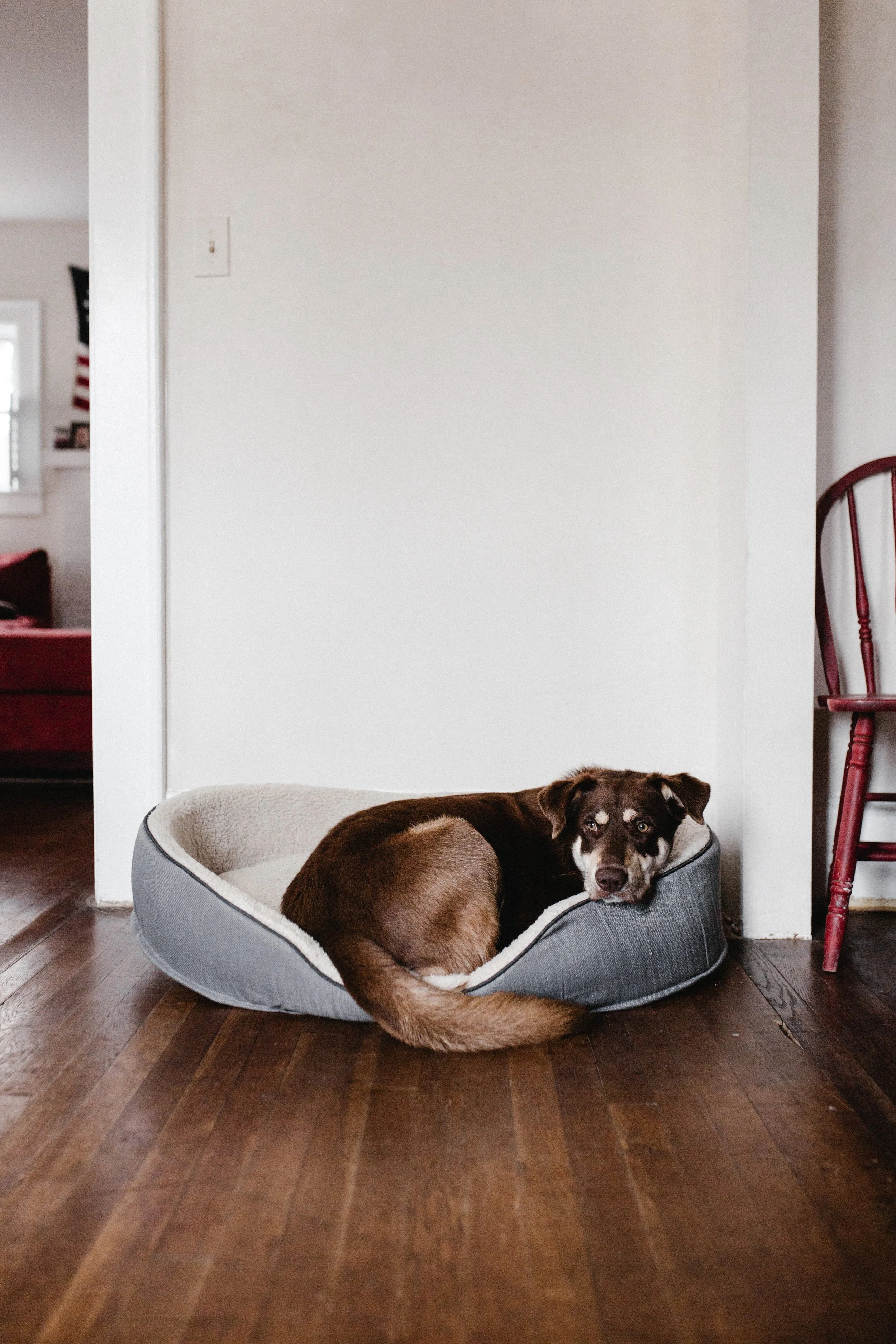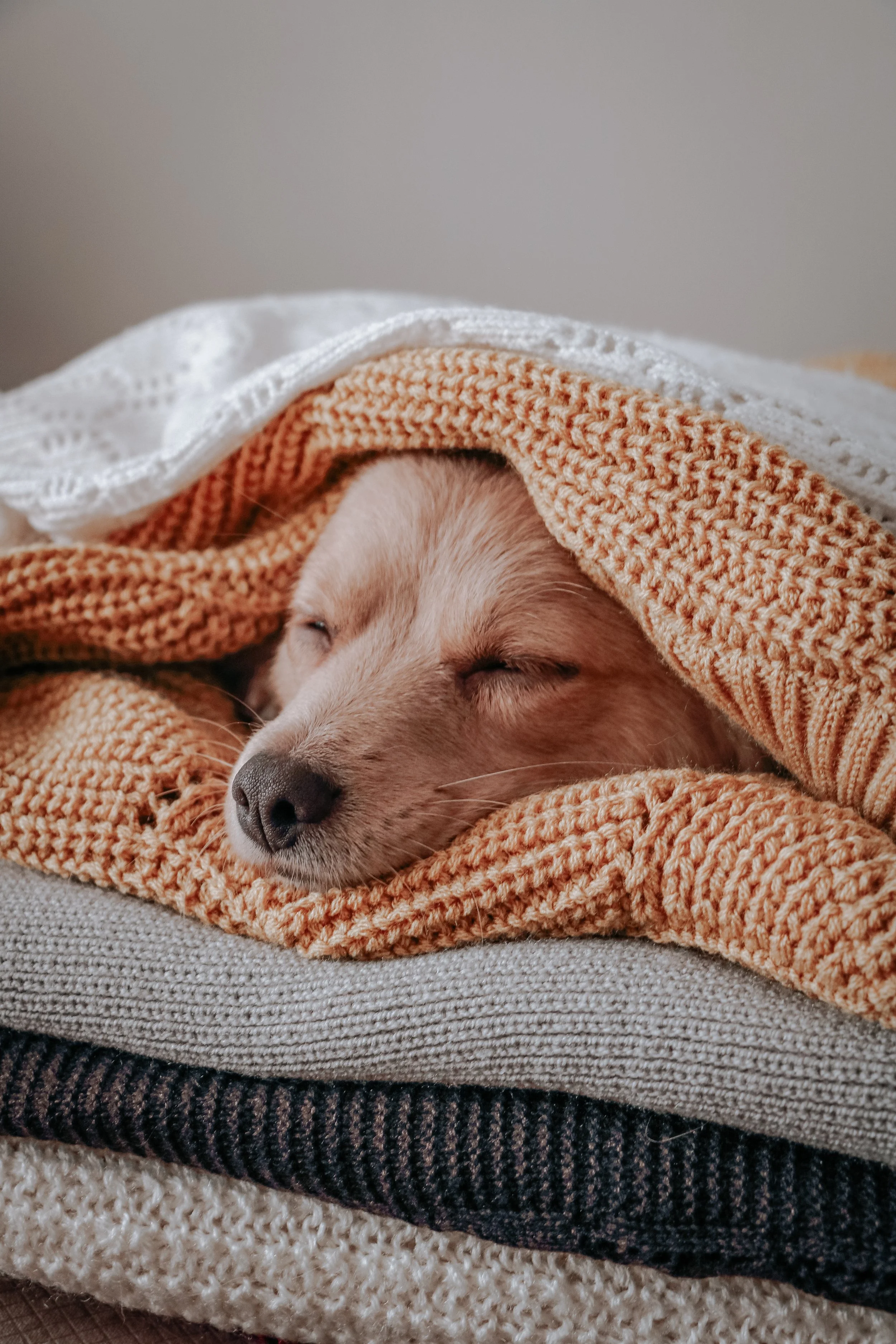How Many Hours Should Dogs Sleep?
If you have a furry friend, you are well aware that they love to sleep. I swear my pup is always napping. And I don’t blame her. If I didn’t have any responsibilities, I, too, would be sleeping the day away.
While speaking to Pet MD, Dr. Nicholas Dodman of Tufts University shared why we should make sure our furry friends are getting enough sleep.
Photo by Tj Kolesnik on Unsplash
“All day long, electrical activity is happening in our brain, and random, disorganized data gets stored in various places. We organize that in our sleep, and dogs do, too. It’s very therapeutic, and if you deny dogs that, they’ll kind of lose it,” said the professor emeritus.
Now, you may be curious how much sleep is too much sleep for your canine companion.
Photo by Andrew Neel on Unsplash
Well, according to Pet MD, adult dogs will typically doze for a total of 12 hours each day. However, older pups and larger breeds like to get in more z’s. Puppies will also sleep between 18 to 20 hours. If your canine companion is not getting enough sleep, they may be more reactive and have memory problems, per the Sleep Foundation.
Adult dogs who sleep more than 15 hours are cause for concern. Hill’s reported that excessively sleeping in combination with appetite changes and frequent urination may be an indication that your canine companion is diabetic or has issues with their kidneys. Please contact your vet if you notice these signs.
Photo by Graham Holtshausen on Unsplash
The Sleep Foundation also reported that dogs can have sleep disorders. Some pooches have canine narcolepsy, which can cause “excessive daytime sleepiness and cataplexy.” Dogs can also have obstructive sleep apnea. Pups with this sleep breathing disorder will often snore loudly.
According to Stanley Coren, PhD., DSc, FRSC, in a 2010 article written for Psychology Today, your furry friend likely is dreaming while they are sleeping.
“[D]uring sleep, the brain wave patterns of dogs are similar to that of humans and go through the same stages of electrical activity observed in humans, all of which are consistent with the idea that dogs are dreaming,” wrote Dr. Coren.
Photo by Adam Grabek on Unsplash
It is also believed that dogs dream about what they did in a day. For example, Dr. Coren asserted that a “dreaming pointer may immediately start searching for a game.” According to the Veterinary Center of America, how often your pup dreams depends on their size. Research has shown that “smaller dogs seem to have more dreams than their bigger friends.”
Photo by Sdf Rahbar on Unsplash





